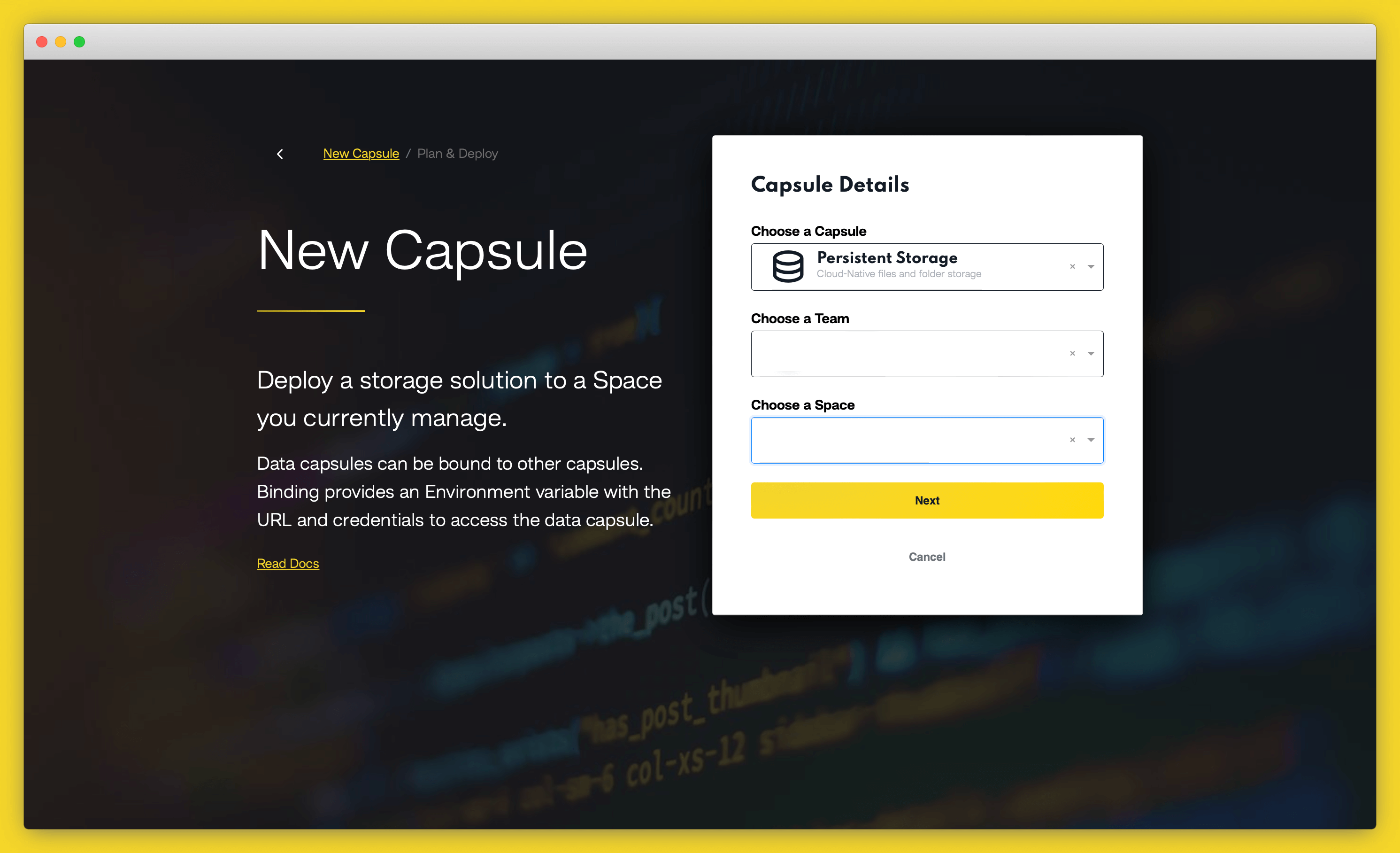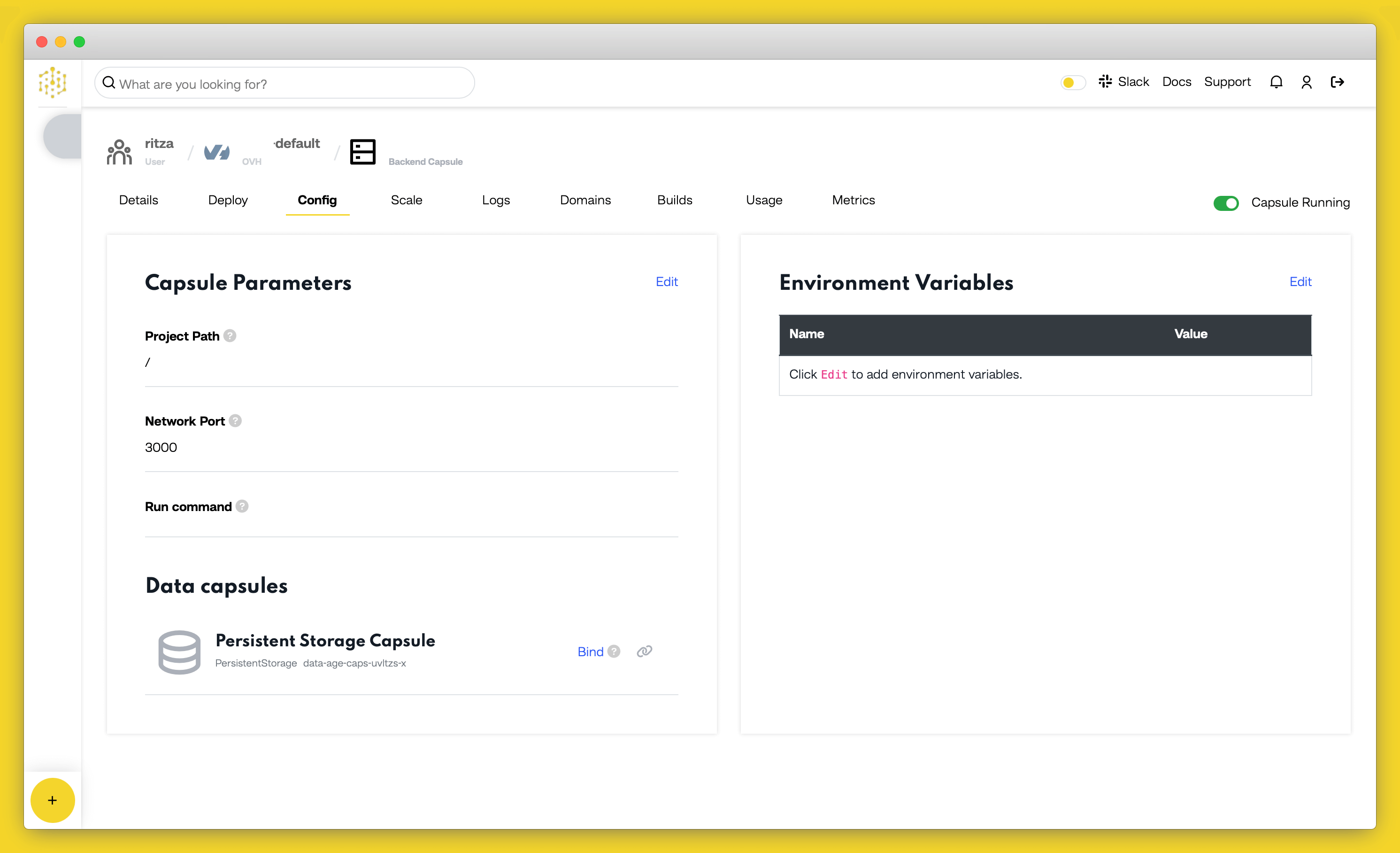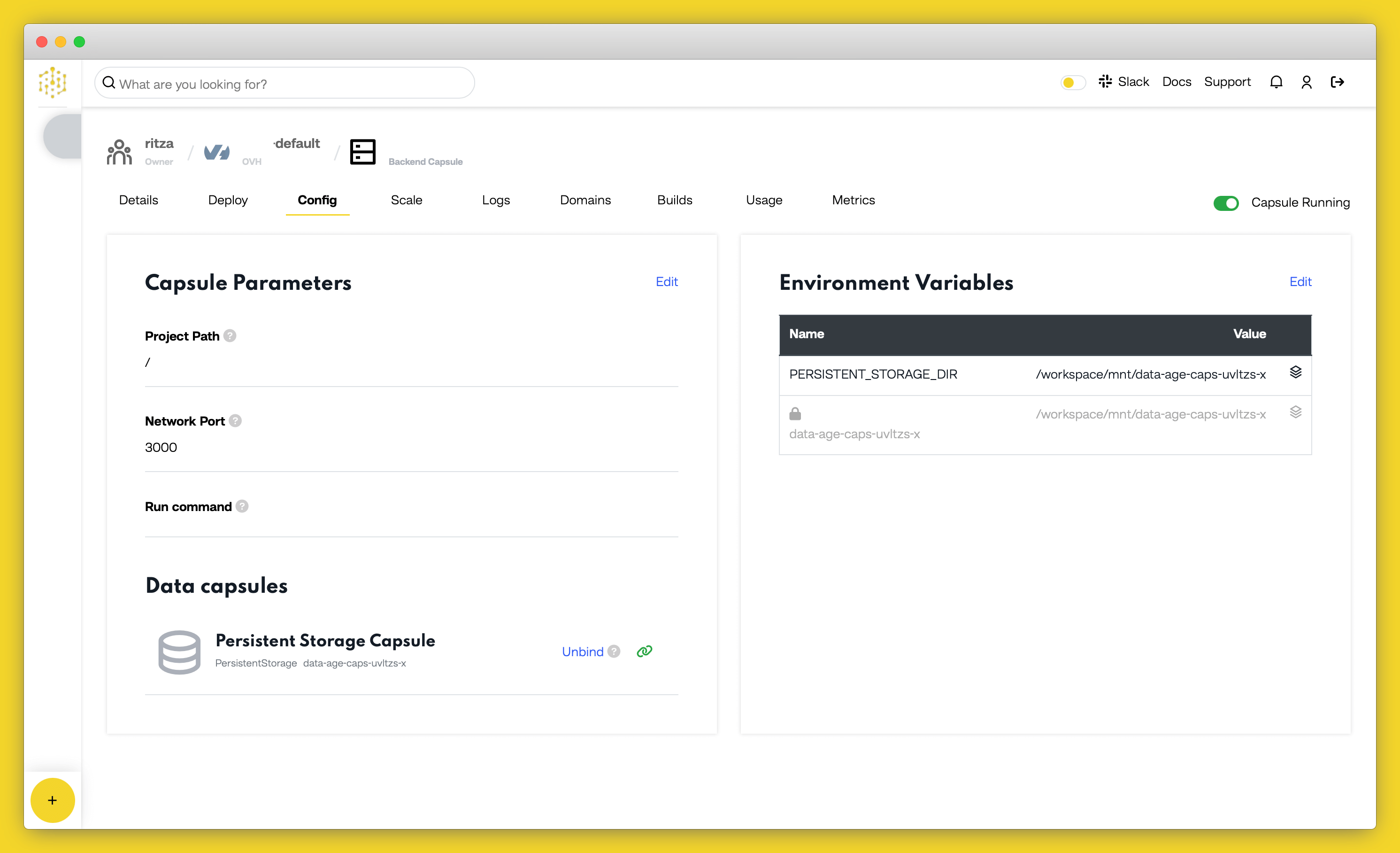You need persistent storage to develop your application that solves a real-world problem, but you don’t want a full-blown database. In this tutorial, we’ll show you how to create a persistent file Data Capsule that you can use with your backend applications running on Code Capsules.
Create a File Data Capsule
Log in to your Code Capsules account and navigate to the Space your file data capsule will be contained in. Click the yellow + button on the top right of the screen and select the “Persistent storage” option from the “Create New Capsule” screen.

Choose your payment option, then click the “Create Capsule” button.
Binding a Data Capsule to a Backend Capsule
You need to bind the Data Capsule to a Backend Capsule hosted on Code Capsules before you can connect to it and use it.
Navigate to the Backend Capsule and click “Config” to open the capsule’s config tab. Scroll down to the “Bind Data capsule” section, where your recently created data capsule will show.

Click “Bind” to bind your Data and Backend Capsules. During the bind process, Code Capsules creates a PERSISTENT_STORAGE_DIR environment variable to let your Backend Capsule know where your Data Capsule resides to access its features. Once the two capsules have been bound, you can scroll to the top of the Configure tab to find the value of this variable.

The next step is to use this environment variable in code to read and write to our Data Capsule. Copy the value of the PERSISTENT_STORAGE_DIR variable and paste it in your code as the value of the db_directory variable. Alternatively, reference it directly in your code using os.getenv for Python or process.env for Node.js.
Connecting to a File Data Capsule From a Python Application
If your backend capsule is a Python application, use the following code to connect to your file data capsule:
import os
db_directory = os.getenv('PERSISTENT_STORAGE_DIR')
### Do something with the db_directory variable here
file_to_write = os.path.join(db_directory, "test.txt")
file1 = open(file_to_write, "w")
file1.write("File writing test")
file1.close()
Connecting to a File Data Capsule From a Node.js Application
If your backend capsule is a Node.js application, use the following code to connect to your file data capsule:
db_directory = process.env.PERSISTENT_STORAGE_DIR
const fs = require('fs')
const content = 'Some content!'
// Do something with the db_directory variable here
fs.writeFile(db_directory + '/test.txt', content, err => {
if (err) {
console.error(err)
return
}
// file written successfully
})